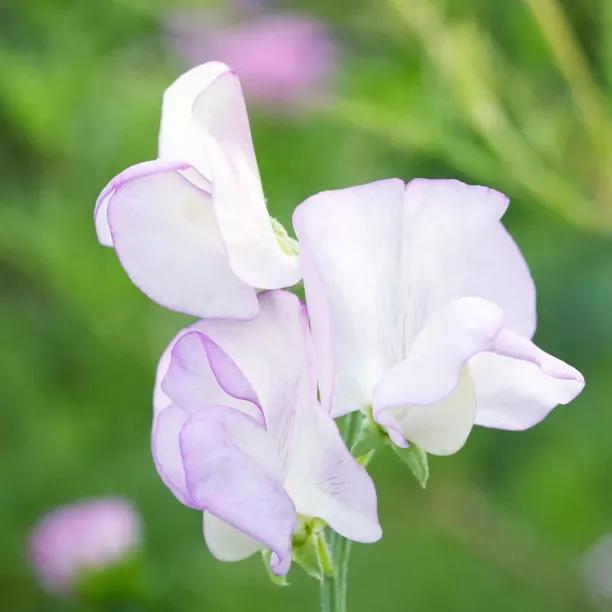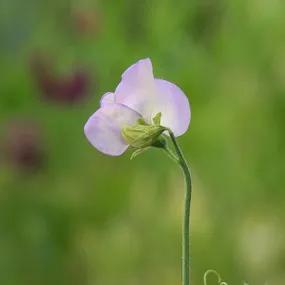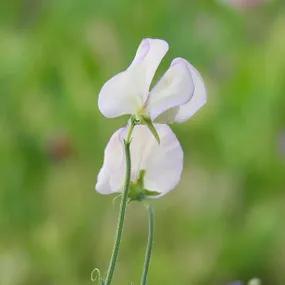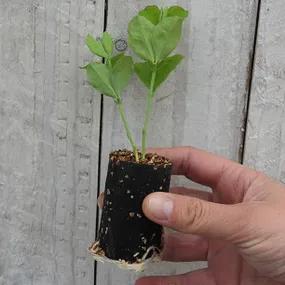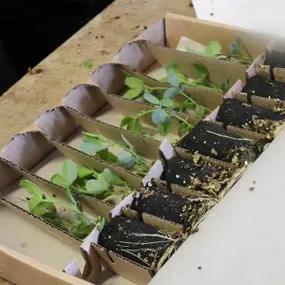'Kings High Scent' Sweet Pea Plants & Seeds
Honest Delivery Prices- Colour: Creamy white flowers with a violet picotee
- Stem: Up to 25cm
- Height: 1.8m
- Scent: One of the best!
- Cutting: Good
- Flowering: June to August/September
- Planting Months: March-June
- Type: Grandiflora
- RHS Award of Garden Merit
Recommended extras
Description
Lathyrus odoratus Kings High Scent Sweet Pea Plants & Seeds
Creamy white flowers with a violet rim (known as a picotee) and a seriously powerful scent. This grandiflora type blooms June to September in ideal conditions, but the display is mostly over by mid-August. To 1.8m
Browse all of our sweet pea varieties.
Our Sweet Peas are delivered in purpose-designed, recycled cardboard packaging, and are ready to be planted out when you get them.
We generally send them out between March and May, but we will email you with the likely delivery timescale once you have placed your order.
Features
- Colour: Creamy white flowers with a violet picotee
- Stem: Up to 25cm
- Height: 1.8m
- Scent: One of the best!
- Cutting: Good
- Flowering: June to August/September
- Planting Months: March-June
- Type: Grandiflora
- RHS Award of Garden Merit
Growing Kings High Scent Sweet Peas
To thrive, they need something fairly sturdy to climb over, full sun, with high potash plant food every other week and plenty of water during the growing season.
All sweet peas need to be cut and/or deadheaded so that no seed heads form, and you get waves of new flowers for as long as possible.
They perform well in large containers, but will need more watering and feeding than in beds or borders.
Creamy white flowers with a violet rim
Planting Instructions
Plant Kings High Scent Sweet Peas in well prepared, moist soil that ideally was enriched with organic matter the previous autumn (if you did not do it then, do it now!). Erect supports for the peas to climb up before planting. They can also be planted in pots of sufficient size - allow 6 litres per plant - and with an ideal planting medium of 50% compost, 40% top soil and 10% well-rotted manure. General-purpose compost will do however but produces fewer flowers.
The principal requirement is enough water - Sweet Peas are thirsty and hungry plants, so the soil should never dry out. They can cope with a little shade but flower better in full sun.
Space each plant about 30 cm apart and about 5 cm from its support. The hole should be deep enough to accommodate the longest root and the soil should come up to the level of the first side shoot. Use wire/netting/twine between the supports so that the Sweet Pea can climb naturally. You will still need to tie them into the frame. They grow fast, so check every ten days or so.
As the flowers develop pick them and then pick again, otherwise they start to form seedpods and will stop flowering altogether. Keep tying in and picking for as long as you can. Perfectionists will remove the curling tendrils which grip other stems and can result in flowers with wiggly stems and also will remove side shoots.
Apply a high potash and phosphate fertiliser during the growing season. (Sweet Peas fix nitrogen from the air into the soil, so you don't need more of that.) Home-made comfrey liquid is perfect or Tomorite will do especially if you are on a sandy soil.

